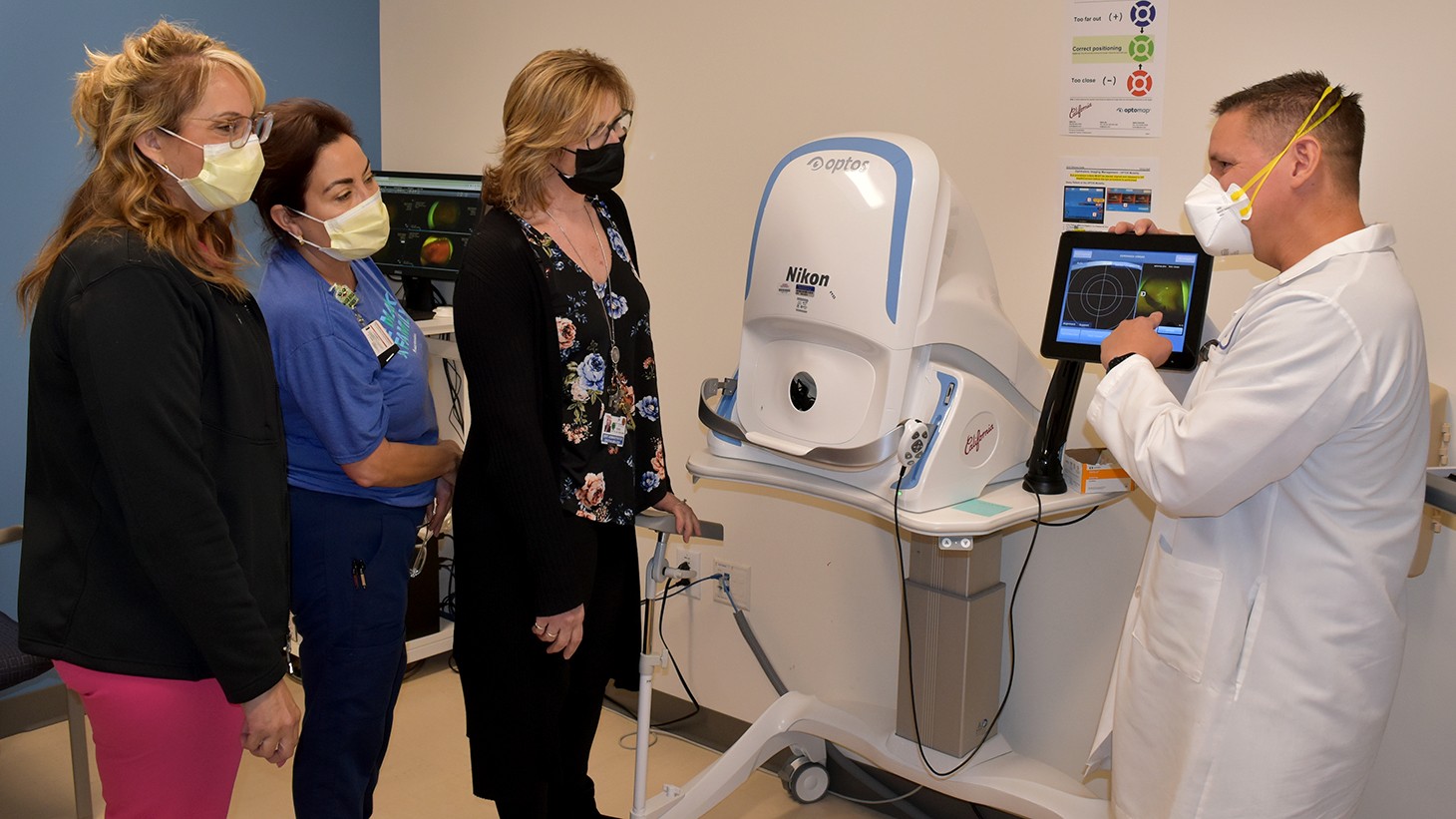
Dr. Sanchez with members of the opthalmology UBT (Terri White, Amber Romero and Daria Ongsing), whose work together is laying the foundation for more physician involvement.
UBTs Help Physicians Combat Stress
At risk for pandemic-related burnout, physicians in the Antelope Valley acted to strengthen their mental health and well-being. They didn’t want well-meaning but unquantifiable efforts, they wanted to see real results. Increasing physician involvement in unit-based teams was part of a 5-pronged campaign to ease workplace stress and anxiety. Efforts included explaining mental health benefits, creating an online Yammer community, having conversations around the theme of “what matters most to you,” and improving communication systems. One source of burnout is lack of autonomy in the workplace. Some physicians saw how unit-based teams could be a place to have a say in improving workflows and processes with colleagues – and they got involved in making small but important changes. For example, members of the Ophthalmology team figured out how to stagger patient appointments to maintain safe physical distancing while still providing timely, quality eye care. And when doctors expressed frustration with the lack of nurse coverage from noon to 1 p.m. – because all the nurses took their lunch break at the same time – the team figured out how to stagger meal breaks. Physician chiefs saw these successes and encouraged more doctor involvement in UBTs. The approach shows so much promise that the regional LMP council created a subcommittee to spread this practice to other facilities.
Here's What Worked
- Earning support from top physician leaders by showcasing solid UBT wins
- Creating a suite of materials and training to help physicians understand unit-based teams and their unique roles and contributions to them
- Including information about UBTs and their role in creating an efficient practice in orientation for new doctors
Of Level 4/5 UBTs with physician representation, up from 42 percent 3 months prior
Need an Idea? Borrow One!
debug - term_args : 0
